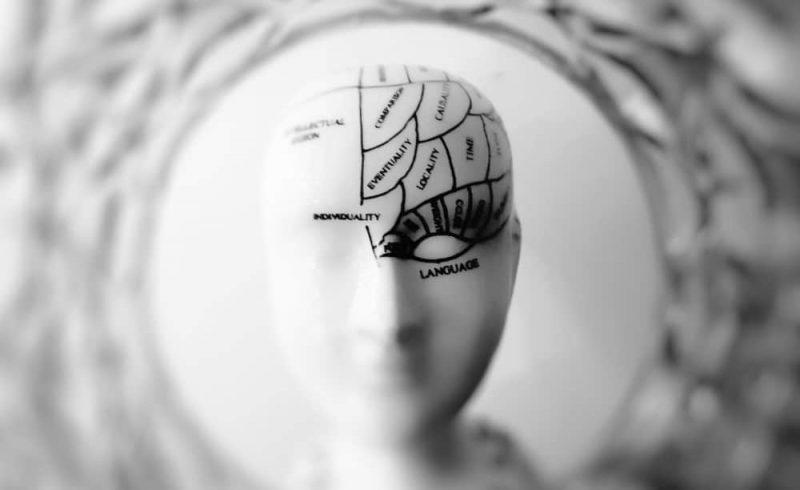The growth hormone BDNF not only helps to prevent diseases in the brain but also to increase mental power and to optimize memory.
But what are the effects of BDNF on the brain? And are BDNF’s effects on the brain beneficial?

We’ll explain everything you need to know about BDNF and how it can boost your brain in this article.
BDNF – just a random collection of letters? Nope.
These four letters stand for Brain-Derived Neurotrophic Factor and it affects various functions of your brain.
In addition to preventing the death of existing brain cells, BDNF also promotes the growth of new neurons and synapses that your brain desperately needs to support cognitive function.
Low BDNF levels are often problematic and associated with many cognitive dysfunctions. These include poor development of nerves, learning difficulties or depression. BDNF is a protein from the group of neurotrophins, ie a supporter in neuron production and care.
Although there are several neurotrophins in the brain, BDNF is the most active and universal among them. In this article, you will learn how BDNF works on the brain, what the growth factor is good for and how you can increase BDNF naturally.
What is BDNF?
BDNF (Brain-Derived Neurotrophic Factor) is an important protein that affects both brain function and the peripheral nervous system.
In the course of your life, your brain changes and is further reorganized by forming new nerve connections. Neurotrophins are chemicals that help to stimulate and stimulate neurogenesis, ie the formation of neurons. BDNF is one of them.
For those areas of the brain that are important for learning, memory, and higher thinking, GDNF is responsible. GDNF stands for Glial Cell Line-Derived Neurotrophic Factor, and it is responsible for the survival of neurons.
BDNF, on the other hand, is especially important for your long-term memory. It helps to support the survival of existing neurons and promotes the growth, regeneration, and formation of new neurons and synapses, which is why BDNF is also considered to be growth hormone in the brain.
Because neurons are responsible for the transmission of signals and thus the entire communication system in your body, BDNF is indispensable for your brain and optimal focus.
Take-Home-Message # 1: BDNF stands for Brain-Derived Neurotrophic Factor and is an essential protein in your brain. Above all, it is responsible for your long-term memory and helps with the development, growth, and survival of neurons in your brain. BDNF is very important for your brain performance, productivity, and mental energy.
How does BDNF Deficiency influence the Brain?
BDNF is, therefore, a growth booster for nerve cells in the brain – sounds good, doesn’t it?
But what exactly happens with a BDNF deficiency or when something blocks its normal functioning?
With a high BDNF level, it’s easier to acquire new knowledge, remember, and feel happier.
With less BDNF in the brain also fewer neurons are produced and maintained, resulting not only in brain problems but also in a variety of neurological and mental illnesses.
Even Alzheimer’s, epilepsy and depression are often directly related to a low BDNF level. Because BDNF provides the infrastructure for effective learning, BDNF deficiency leads to learning and brain difficulties.
Basically, BDNF is a mechanism that helps the brain to learn. It gives the synapses the tools they need to record, process, remember, and correlate information.
A low BDNF level thus means poorer mental performance. But you can increase your BDNF levels naturally and optimize your learning and concentration.
Take-home message # 2: BDNF deficiency can seriously affect your health, well-being and brain performance. If your brain has to work with lower amounts of BDNF, fewer nerve cells will be produced and maintained, causing your memory and concentration to suffer.
It can even get worse and cause epilepsy, depression or other neurological and mental illnesses. A balanced BDNF level is therefore very important for optimal brain performance.
5 Tips for more BDNF in your Brain
If you want to boost your BDNF levels, there are some natural possibilities to do this.
The good part: You not only optimize your BDNF levels but also increase neurogenesis in your brain. We’ve put together the 5 best tips for you to naturally increase your BDNF level.
1. Get some Sunlight
One way to push your BDNF levels is to get enough sunlight, which the body can convert to vitamin D. Sunlight is the easiest way to increase vitamin D levels. Vitamin D has a direct effect on your BDNF level and is therefore particularly important for your memory and your ability to learn.
The sun vitamin works like a hormone in your body and is indispensable for your metabolic processes. Bringing enough sunlight to your body will definitely push up your BDNF levels.
However, if you can not get enough sunlight all year long and spend too much time in the office and at the desk, you have to expect a drop in your BDNF level. Because foods generally contain very little vitamin D, you will find it hard to meet your daily needs by consuming foods that contain vitamin D, such as fatty fish, dairy products, and eggs. Here only supplementation with vitamin D helps.

2. Do Sports
If you don’t do sports, your brain does not produce enough BDNF.
To boost your BDNF production, you should often and intensively do sports, because the higher the intensity and the more often the activity, the sooner the BDNF production increases.
As BDNF levels increase, neurogenesis is also optimized and the growth of new brain cells increases. It is important that you exercise regularly and permanently. An intensive training session in the gym is unfortunately not enough.
You should not think of the effects of sport on BDNF production as an endorphin release, but rather as a protein that rises after a sustained and constant effort.
3. Intermittent Fasting
Intermittent fasting describes regular temporary fasting and is an optimal boost for your BDNF levels.
Why is that?
In addition to the fact that intermittent fasting can increase the synthesis of the protein BDNF by 400 times, it also has a significant impact on your metabolism, as your body uses existing fat reserves.
So you can not only increase your BDNF levels but also bring your body into the ketosis, a metabolic form in which so-called ketone bodies are formed from medium-chain fats (MCT’s). These ketones are an optimal source of energy for your brain.
4. The right Nutrition
Another way you can increase your BDNF level is to change your diet because your diet generally plays a very special role in your performance and health. Often, a high intake of sugar correlates with a lower BDNF level.
It is important that you eat enough micronutrients and eat many fresh ingredients. Lots of vegetables, high-quality meat, healthy fats, fruits, and nuts not only strengthen your body in general but especially your brain. To optimize your mental performance, the ketogenic diet or a more relaxed low carb diet might be for you.
In a low carb diet, you will cut down on all of the unhealthy carbohydrates and switch to vegetables, meat, fish and more.
The ketogenic diet is an extreme version of that. It’s about making the body stop generating its energy from carbohydrates, but only from fat, so you’re almost completely carbohydrate-free in this diet. On the menu here is fat, fat, fat!
5. Supplements
Various additions to your daily diet can support BDNF production in your brain. We’ve put together the top 3 nutritional supplements for you to boost your brain function and optimize your mental performance.
Curcumin: Curcumin can promote BDNF production in the hippocampus.
In the hippocampus, the information flows from different sensory systems, which are processed and forwarded from there. The optimized BDNF production not only helps to heal brain injuries faster but also has an antidepressant effect and improves cognitive function.
Curcumin is contained in turmeric. So if you regularly spice up with the yellow powder, you are doing your brain a favor. But as you’d have to eat around half a Kg of turmeric a day, I’d consider switching to supplements.
Green Tea: An easy way to increase BDNF levels is to drink green tea regularly or take green tea extract. The infusion of non-oxidized tea leaves stimulates the production of growth hormone in the brain and thus increases your capacity and your ability to concentrate.
Omega-3 fatty acids: Omega-3 fatty acids, which are naturally only contained in seafood and fish, also have a strong influence on the production of BDNF.
If you do not eat fish at least a few times a week, you may want to take omega-3 supplements. In particular, the omega-3 fatty acid DHA (Docosahexaenoic Acid) is responsible for the increase in the BDNF level, because it works in the brain as a membrane component of nerve cells.
Take-home message # 3: There are several ways to optimize your BDNF levels. You can change your diet, consume little sugar, feed on low carb or ketogenic, or even fast. On the other hand, sunlight and sports can help you push your BDNF levels. Lastly, supplements, such as Omega-3 or Vitamin D can help you to support growth hormone and increase your brain performance.

BDNF Brain Benefits
Why should you care about your BDNF level? As you already know, low BDNF levels also mean less production and supply of neurons in your brain.
Low BDNF levels are therefore associated with the development of various diseases. Almost any abnormal condition of cognitive function is associated with low levels of BDNF.
BDNF has a positive effect on your cognitive functions and your mental health. The growth hormone can improve both short-term and long-term memory.
So if you think that your BDNF level is too low because you have difficulty learning or often forget things, you can use one or more of the tips above to get your brain going.
Remember, your BDNF level does not rise dramatically overnight. It can take several weeks or months before a BDNF deficiency normalizes. But if you try to integrate our 5 tips for a better BDNF household into your everyday life, then you will not only increase your BDNF production but also improve your overall health.
Take Home Message # 4: You should always pay close attention to your BDNF levels because a lack of growth hormone can lead to many neurological and mental problems. BDNF not only has a strong influence on your short-term but also on your long-term memory. Only if you take good care of it and pay attention to a proper lifestyle, your brain can work optimally and your body to the best.
Conclusion: BDNF for the Brain
All in all, BDNF is essential for normal brain function. If you’ve checked the 5 tips for higher BDNF level, you’ll notice that being healthy is not rocket science.
Sports, good nutrition, some supplements, that’s all common sense.
Cheers,
Sam




